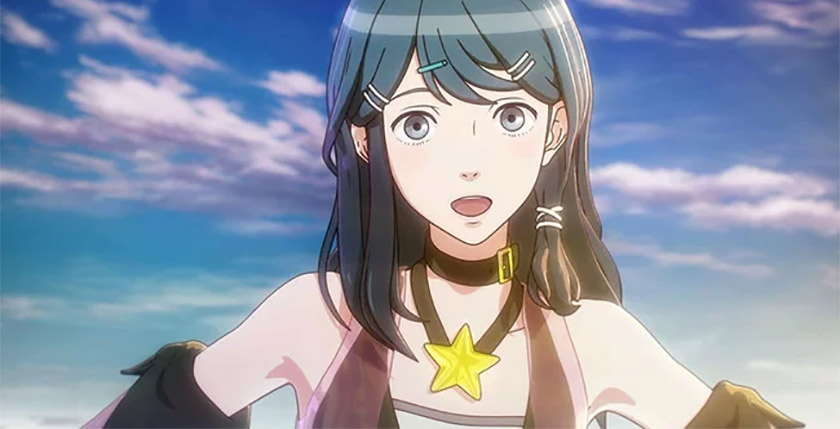Questions of Change

One of my favorite pieces written for GamersWithJobs was Idol Fantasy. It is a critique of Tokyo Mirage Sessions #FE and its adherence to the often damaging fantasy that the pop idol lives altruistically for the fans. Shy and conservative Tsubasa is frequently stripped down into more sexy outfits despite the innocent naivety of her personality being a selling point. More and more the different producers, photographers, and directors of the show insist that who she is isn’t good enough, fighting tooth and claw to transform her into an entirely different identity.
She is a contrast to Kiria, the experienced pop idol that is dedicated to the image of “cool” that her fans and the industry expect of her. As a result, she is embarrassed to express any of her love of “cute” things for fear of damaging this constructed and maintained image. Each singer is, in some way, representative of a cultural pressure cooker where these girls must deny themselves for the sake of a fandom. An audience that doesn’t want them, but a superimposed idealization of who they ought to be in their eyes.
The game does not challenge its audience. It instead feeds into the fantasy these carefully crafted careers are trying to feed. Nevertheless, this isn’t about the game’s thematic potential or shortcomings. It is about the game’s modifications for the West and the mixed feelings I have of said “censorship”. I supported some of the changes for the manner in which they actually strengthened the narrative. I simultaneously decried other changes for reducing the intended impact. These conflicted feelings are now rising to the surface once more as the Switch port of Tokyo Mirage Sessions will include all the Western adjustments and censorship, even in Japan.
This week, one of the screenshots on the Japanese website for Tokyo Mirage Sessions on Switch swapped from the Japanese WiiU version to the Western WiiU version. Nintendo has clarified that the Japanese edition of the game will include all the changes made to the Western version, subsequently extending an apology to its fans and offering them the ability to cancel their pre-orders and receive a refund.
Not so many days ago I addressed the subject of making adjustments to games for foreign territories in my essay Having Your Cake. I had written:
These thoughts especially came to mind watching a video from Bellular News on YouTube, where he discussed Blizzard’s attempts to be more inclusive and “progressive” with games like Overwatch. A statement that seems contradictory or hypocritical when you consider how any acknowledgment of certain characters being homosexual is removed in Russia’s localization.
Since that post I have spoken to a friend of mine involved in AAA game development. He reminded me of the myriad changes made for International releases in countries such as Germany and Japan. Reduction of blood content and violence in order to earn a certain age rating for sale, for instance. It turns out America allows for a lot more blood and violence than some other countries do. In addition, even Japan’s laws regarding sexual content are far more restrictive than America’s, despite assumptions to the contrary.
So imagine if a remaster of Grand Theft Auto 5 was to be released on the next generation of consoles, only with all the modifications made to the Japanese version applied to all territories. Be it direct depictions of sex, imagery of bare breasts or genitalia, or the obscene degree of violence in the torture sequence, it would all in some fashion be removed for all future releases in the West. The only way to play the game unedited would be to own that original release.

Image source. Left depicts an outfit I think works better for what the game is attempting to reflect regarding Tsubasa’s growth. Right depicts the original Japanese version.
Americans are already up in arms about China’s policies being invoked upon the NBA and the Houston Rockets. America being forced to change their art within their own territory due to a foreign government’s content policy would be perceived as an infringement.
This is precisely what’s happening in Japan, however, only the changes aren’t necessarily due to laws. They’re content policies based more on vague, wiggley definitions of what is and isn’t okay to portray.
Ever since Sony had moved its headquarters to the United States, Japan has seen a slew of changes and adjustments to their games in Japan that aren’t present on other platforms. Be it the removal of jiggle physics or added lens flare, games released on PlayStation in Japan have adjustments made on an American basis that aren’t present on the Switch or PC versions. This has led to the entirety of the seventh Senran Kagura game to be taken back to the drawing board, and eventually leading to the franchise director leaving Marvelous! altogether.
For many players in Japan, the Nintendo Switch and PC have become the place to go to for the definitive or intended versions of these titles. Now, however, they are finding Tokyo Mirage Sessions #FE modified with no justification given. I have to wonder, in addition to other rumors and news I’ve heard regarding the anime industry, if the island nation is feeling frustrated at what is ultimately cultural colonialism: American companies pushing their cultural standards onto Japan.
Just as before, I have mixed feelings. While I prefer any creation be as closely preserved to the director’s vision as intended – an admittedly impossible task that will always require compromise to some extent due to cultural and linguistic differences – there are some moments where localization changes enrich or feel in line with the artwork’s vision. While I ultimately prefer Netflix’s new translation for Neon Genesis Evangelion and believe the original ADV dub took a lot of liberties that hindered the overall quality of the product, Tiffany Grant’s mixture of English and German in Asuka’s dialogue was absolutely fitting. It was a legitimate addition to the character that gave her more depth and fit her personality.
To that end, some of the costume adjustments for Tsubasa in Tokyo Mirage Sessions were more fitting in the Western version. Most notably her hip-hop outfit and its change from a more skimpy one. It had a cute and confident style that matched her developing self-esteem in that chapter without compromising her personality. She was not who the photographer was demanding, but instead chose to be someone better: her more confident self.

The original photos decorating Illusory Shibuya, reflecting the possessed photographer’s lewd demands of his models.

The adjusted photos for the West, covering the girls up and thus removing part of the darker pressure the photographer had been putting the girls through for the sake of a false image.
The problem is that the Western version also modified that entire dungeon in such a manner that this adjustment was unintentionally weakened. Originally, the possessed photographer had demanded lewd photos of the models he was capturing on camera. During localization, the dialogue was heavily modified in order to make the photographer’s desires less sexual, as were all the photos scattered across his dungeon. Tsubasa’s new change in outfit would have actually worked better contrasted against the photographer’s perverted demands. Tsubasa choosing not to be the objectified woman he demanded, but to instead be herself.
To me, the ideal situation is for the Western version of the game to retain some changes while removing others. However, there still remains the question of whether any of these changes should carry over to the Japanese release? The changes I support make the game stronger as a whole in my opinion, but that opinion may not be universal. One could see her swapping out to that sexual outfit as instead owning her sexuality and physique rather than it belonging to the photographer. I feel like it’s a weaker argument, but one that could certainly be made.
Ultimately, I think that question is not up to me, nor should it be up to anyone else outside of Japan. I believe it should be up to Japanese players to determine which version is preferred. Unfortunately, I imagine the International version was selected for ease of porting. There’s WiiU gamepad functionality that would need to be overhauled, and when you factor in all the additions being made, I imagine working from a single version rather than two separate code bases is more feasible. Nintendo likely chose the Western edition since they intended to maintain those adjustments anyway.
Or, perhaps if we want to be cynical, they simply chose the version that would likely sell more units. I’d like to be glass half-full on this one, though.


